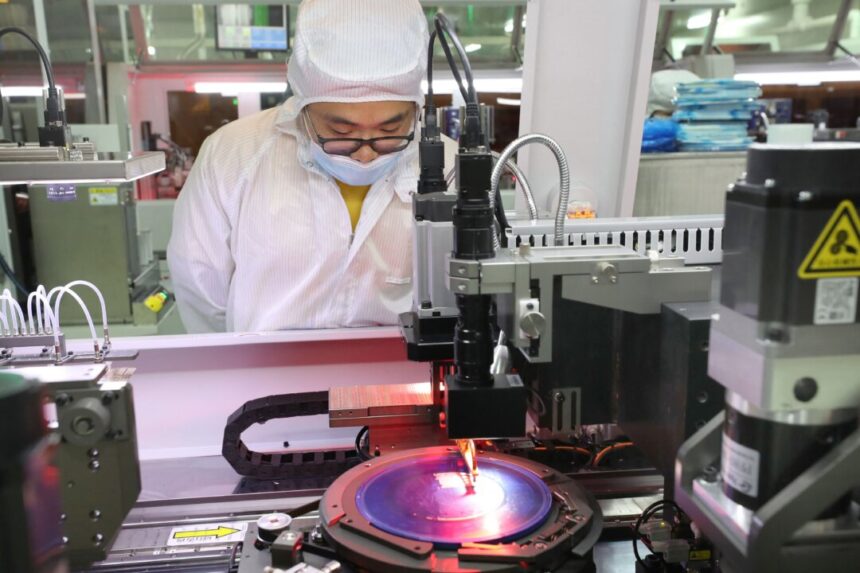U.S. lawmakers have recently sent an official letter urging Japan to restrict the sale of semiconductor chip-making equipment to China. John Moolenaar (R-Mich.), chairman of the U.S. House of Representatives Select Committee on the Chinese Communist Party, and Democratic Rep. Raja Krishnamoorthi (D-Ill.) expressed concerns over the flow of Japanese semiconductor manufacturing equipment to China in the letter to Japanese Ambassador to the United States Shigeo Yamada on Oct. 15. They warned that failure to take action may result in Washington imposing restrictions on Japanese equipment companies and banning them from receiving U.S. semiconductor subsidies.
The lawmakers refuted claims that restrictions on sales to China negatively impacted chip equipment companies like Tokyo Electron (TEL). They argued that these companies have not suffered as suggested by multilateral export controls. Citing the rise in share prices of Tokyo Electron, ASML, Lam Research, and Applied Materials, as well as substantial subsidies in chip programs, the lawmakers found the companies’ claims of being affected by export controls unpersuasive.
Despite the lucrative market in China for chip tool manufacturing companies, officials in Japan and the Netherlands are hesitant to impose further export restrictions. Moolenaar and Krishnamoorthi emphasized the importance of cooperation between the U.S., Japan, and the Netherlands to counter China’s ambition of dominating the global chip market.
The lawmakers highlighted the risks associated with continuing exports of chip manufacturing equipment to China, giving the CCP significant leverage over nations’ ability to produce essential goods and weapons systems. They stressed the need for multilateral action and proposed tightening subsidy rules to prevent companies from obtaining U.S. subsidies after selling advanced chip equipment to China.
The letter also mentioned bipartisan support for U.S. unilateral measures, including expanding and strengthening the Foreign Direct Product Rule (FDPR) to ensure that any machine produced with U.S. technology requires an export license prior to export to China.
Japan has not responded publicly to the letter, with experts suggesting that its reluctance to restrict exports to China could be due to its trade deficit with China and concerns about potential trade retaliation. The lawmakers expressed concerns about China’s use of semiconductor equipment to establish a dominant industrial base, emphasizing the critical role of semiconductor technology in modern economies and militaries. The chipmaking capability of China was discussed by Su, who mentioned that they are able to produce 12-nanometer chips using Chinese-made equipment, although the yield rate is not optimal. China is now working on producing 7-nanometer chips with domestically-made equipment, which is considered a crucial threshold for technological advancement.
Su also expressed concerns that if Japan provides equipment for China to improve its chip production, it could pose a potential threat as China focuses on developing more advanced chips. Wang mentioned that Japan is likely to follow the United States in banning chipmaking equipment due to their close alliance.
Amidst tensions between China and Japan, especially with recent events causing anti-Japan sentiments in China, Japanese companies are starting to withdraw investments from China. This could lead to the Japanese government taking a tougher stance on China in the future.
Overall, the development of chipmaking capabilities in China and the potential implications for Japan and the United States are significant factors in the evolving landscape of global technology.
Source link




